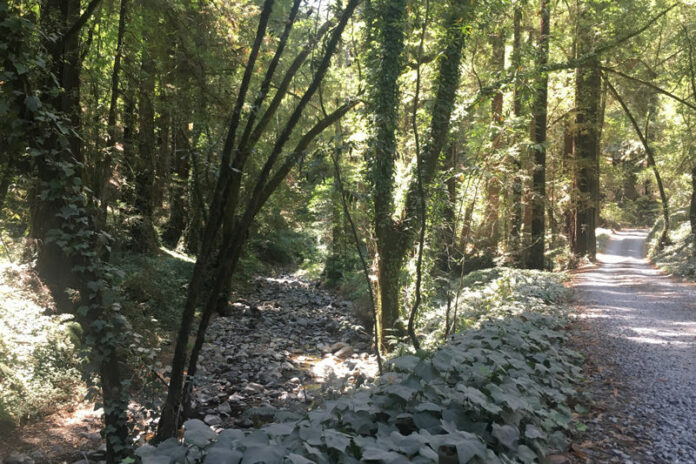Cal Fire requesting amendments to address concerns
Cal Fire has delayed a final decision on the approval of a proposed timber harvest plan (THP) near Felta Creek after the agency requested last-minute changes of the registered professional forester in charge of the project.
The requested changes address many issues and concerns brought up by the public, including mitigation efforts to protect Felta Creek and reduce traffic impact to the rural school that serves the area.
The THP, labeled 1-17-017SON and nicknamed “Fox Meadow” by Cal Fire, aims to manage the 160 acres zoned for timberland harvest production by harvesting 146 acres in three units; 51 acres will be harvested using transition harvesting, 79 acres will undergo group selection harvesting and 16 acres will be harvested using single selection silvicultural methods.
According to a July 28, 2017 letter to Randy Jacboszoon, the Registered Professional Forester (RFP) in charge of the plan, Cal Fire, “discovered or [became] informed of issues that require revisions to the THP and are needed for a complete and accurate plan record.” Once Cal Fire receives the revision, the plan will be open to public comment for a minimum of 30 days.
The requested changes include major revisions to the stated vehicular traffic impacts. Currently, Cal Fire, “cannot make the determination that vehicular traffic impact from the proposed THP will be less than significant,” the July 28 letter reads.
To be able to adequately determine traffic impacts, Jacobszoon must determine the vehicular traffic impacts assessment area, which includes defining and describing the haul route, the condition of the roadway and bridges the log trucks will drive on and who will be responsible for maintaining the roadway and bridges. The THP also needs to include the estimated number of log truck trips and estimated duration of the proposed hauling/timber operations. The THP must also include the stated hours of operation for the proposed THP, defining when logging trucks will be hauling.
Last month Jacobszoon said hauling operations would not interrupt West Side School, located on Felta Creek Road.
“We’ll limit the hours of driving so there aren’t conflicts with students and parents,” he said.
Officials from West Side Union School District are opposed to the project and request additional research and studies from both Cal Fire and the RFP to ensure student and staff safety. During the school district’s June 29 meeting, the board of trustees adopted a resolution urging a transportation impact and safety study.
“We urge this study to be conducted when school resumes in late August and prior to commencement of the project,” Patricia Bertapelle, president of the West Side School Board, wrote in a letter to Cal Fire.
The requested changes also concern the impacts to Felta Creek. According to the National Marine Fisheries Services, Felta Creek is, “the only stream in the Dry Creek watershed where wild Coho salmon have been observed frequently.” The federal agency, which is responsible for the management, conservation and protection of living marine resources near the coast, believes that salmon are likely present within the boundaries of the THP.
Furthermore, the area is identified as a critical for the recovery of the Central California Coast Coho salmon. A core area, according to NMFS, is, “an area where habitat restoration and threat abatement in the near term are the two highest priorities to advance recovery and prevent extinction of the Coho Salmon.” Responding to a possible threat of disturbance to the Coho salmon population, Cal Fire requests a more updated survey of the area’s Coho salmon population, as the one originally submitted is more than a decade old. The THP also did not originally state that Felta Creek is identified as a core area; as such, Cal Fire requests an updated description of the area and plans for how the RFP will mitigate disturbance of the core area.
Additionally, the THP failed to adequately address the visual impacts to the area, evaluate greenhouse gas emissions and complete its plans for winter operations.
50.7
F
Healdsburg
April 19, 2025








